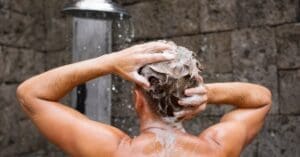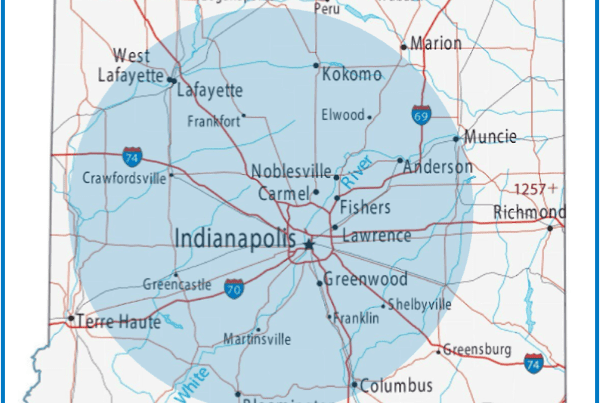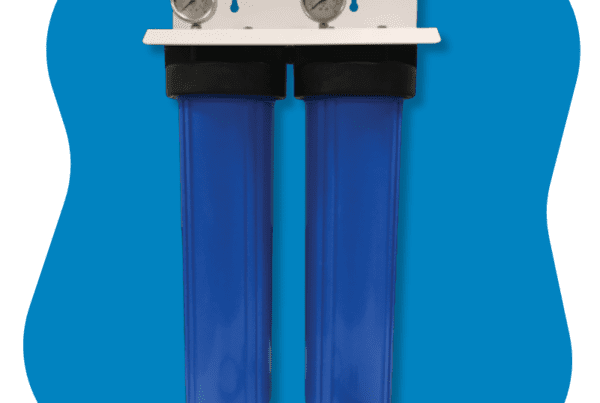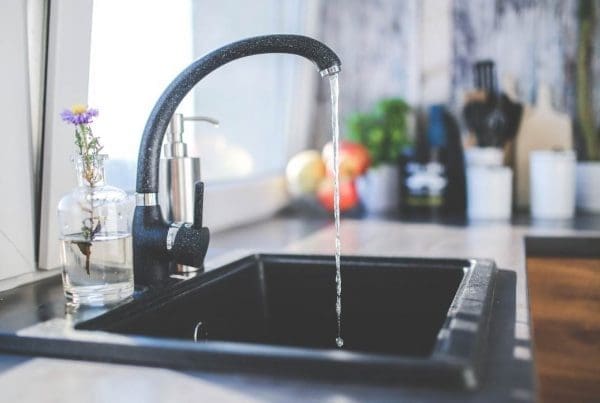Whether you are new to owning a water softener or have had one for decades, you may still have unanswered questions. Let’s dig into some of them.
If Water Is a Liquid, Why Do We Call It “Hard”?
It’s hard to say 😄 when the term “hard water” first came into use. Some accounts suggest that it made cleaning more difficult. Soap didn’t lather as well using some water sources, and it was “hard” to clean clothes. The term also connects to the fact that those minerals literally come from hard sources like limestone and chalk underground. Regardless of its origin, we know today that hard water leaves behind limescale on your skin, hair, appliances, and pipes. Over time, that buildup can cause dryness, dull hair, and costly damage to your plumbing and water-using appliances.
Why Does Soft Water Make You Feel Slippery?

After installing a water softener in their home, some people think their skin feels slick or slippery after bathing. This isn’t because of a film left behind on your skin. And it isn’t soap that didn’t wash away. It’s quite the opposite. The slickness on your skin after bathing in soft water is due to your body’s natural oils. It’s how clean is supposed to feel! Think of it as having silky smooth skin instead of a layer of water residue or soap skin.
Is the Softener Putting Salt in My Water?
Water softeners use salt, but they don’t dump salt into your water. The salt is used in a reaction to remove minerals like calcium and magnesium, which make the water hard. Sodium ions from the salt replace the hardness minerals in your water. This means that sodium (Na), not salt (NaCl) is added to your water before it gets into your pipes. The actual amount of sodium that ends up in the softened water depends on your water hardness. Still, it’s typically very low, especially compared to the sodium most people get from their diet.
If you need a salt-free alternative, we can help you there. Learn More about salt-free water conditioners.
Is the Softener Removing Any Good Minerals From My Water?
Calcium and magnesium are essential nutrients for your body. But the calcium and magnesium in hard water aren’t as helpful as what you get from food or supplements. The calcium and magnesium that are removed from your water come from dissolved rock (like limestone or chalk). These are inorganic mineral salts, which the body doesn’t absorb as efficiently. These cause more harm to your home than good for your body. Drinking water is good for you. But, drinking hard water won’t add any more benefit to your overall health. So, eat your veggies!
Does a Water Softener Filter Contaminants From My Water?
Yes, a water softener filters materials like iron, magnesium, and calcium that cause scaling, build-up, and rust. But it won’t eliminate all organic or inorganic solids. This is where other water treatment solutions really help. A dechlorinator is recommended to remove the harsh chlorine added by municipal water utilities. Also, a reverse osmosis drinking water system is a great solution for filtering the water your family drinks. It eliminates 99% of organic and inorganic solids, leaving you with great-tasting and healthy water.
See our current special, which bundles them together for significant savings.
Do I Need a Water Softener If I Have City Water?
One of the biggest misconceptions is that homeowners with city water don’t need a softener— quite the contrary. City water is far from perfect. Cities or towns are not required to soften their water supplies, and rarely do. But they are required to disinfect their water before they send it to your home. So, your city water most likely contains hard materials and chlorine. While chlorine is effective in killing the bacteria, it stays in your water. These harsh chemicals are not good for your body, and they also make your water taste more like a pool than pure. If you’re experiencing these water problems, a water softener paired with a dechlorinator is a great solution.
See our city water bundle for significant savings.
Is the Cost of a Water Softener Worth it?
While there are initial costs, there are benefits that come back to you in other ways over time. On top of your water feeling and tasting better, you get the financial benefit of longer-lasting appliances. Hard water shortens the lifespan of your appliances. It also forces them to run harder and less efficiently, resulting in higher utility bills for you. Because it uses less soap and detergent, soft water also saves you money on these items. Soft water will keep clothes from fading, and faucets and fixtures from getting clogged and stained.
Additionally, if you have reverse osmosis, there is no need to buy bottled water, saving you money each trip to the grocery store.
We’re Here To Help
C and J Water are your local water quality experts. We offer a Free Water Analysis. It shows what minerals are in your water and how to best address them. Our professionally certified technicians will give you the best options with no obligation. Contact us today if you have any other questions or to get on the schedule!




